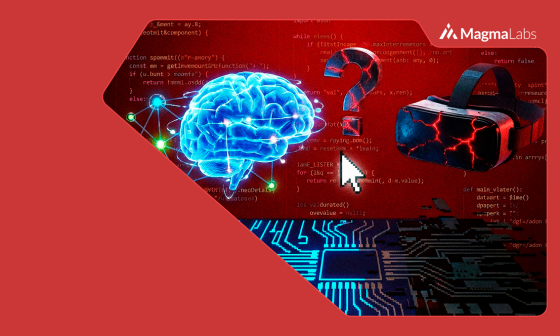This article explores the nuanced effects of artificial intelligence’s ascendancy, analyzing its implications on three key domains – customer service, tech communities, and eCommerce trends.
By examining AI’s role in revolutionizing customer experiences, fostering collaboration and innovation, and dictating novel eCommerce models, crucial insights emerge that illuminate its multifaceted influence. As businesses and individuals continue interfacing with AI-driven solutions, understanding the broader ramifications is instrumental in navigating its ongoing integration across the digital realm.
The Impact of AI in the Digital Landscape
The emergence of artificial intelligence is poised to substantially impact the job market and workforce, including in the build to rent sector. As AI takes over certain tasks and jobs, many roles will need to adapt. For some build to rent professions and industries, the rise of AI will require re-training workers and helping them gain skills to take on new responsibilities.
The workforce will need to be more technologically adept and prepared to leverage AI, rather than compete against it. New job roles may arise to complement AI, such as AI trainers, developers, and ethics monitors. Workers whose jobs are replaced by AI will need assistance transitioning to new careers through job retraining programs and continuing education.
Overall, the expansion of AI in business and society will necessitate evolution of the workforce, with an emphasis on human-AI collaboration and augmentation. This shift will require substantial investment in developing new skills and optimizing humans to thrive alongside intelligent machines. Planning for AI’s impact proactively can help ensure the build to rent workforce is prepared to adapt.
Revolutionizing Customer Service
Under the overarching influence of AI, customer service has undergone a profound transformation, marking a departure from traditional paradigms.
AI-powered solutions are revolutionizing how businesses engage with their clientele, introducing a level of responsiveness and personalization that was once unimaginable.
By leveraging advanced algorithms and machine learning, companies can now analyze vast datasets to anticipate customer needs, streamline issue resolution, and enhance overall satisfaction. From intelligent chatbots providing instant support to predictive analytics optimizing service workflows, AI is at the forefront of redefining the customer service landscape.
This shift not only improves operational efficiency but also fosters a more tailored and user-centric approach, ultimately elevating the standard of customer experiences in the digital age.
Enhancing User Experience and Efficiency
The integration of AI technologies into customer service operations has led to a paradigm shift in how businesses interact with their customers, focusing on enhancing user experience and operational efficiency.
AI-driven chatbots, for instance, offer instantaneous responses, addressing customer queries around the clock. These intelligent systems, equipped with natural language processing capabilities, are adept at understanding and interpreting user requests, providing relevant information, and even resolving common issues without human intervention.
The result is a streamlined and efficient customer service process that not only reduces response times but also allows human agents to focus on more complex tasks, thereby improving overall service quality.
Furthermore, AI facilitates proactive customer engagement by analyzing past interactions and preferences. This enables businesses to anticipate customer needs, offering personalized recommendations and solutions.
By harnessing machine learning algorithms, companies can gain valuable insights into customer behavior, enabling them to tailor their services and products accordingly. This personalized approach not only strengthens customer loyalty but also contributes to a more satisfying and enjoyable user experience, ultimately setting a new standard for customer service excellence in the digital realm.
Empowering Tech Communities
In the fast-paced world of technology, AI stands out as a catalyst for innovation, playing a pivotal role in empowering tech communities globally.
The collaborative nature of these communities is bolstered by AI-driven tools and platforms that facilitate knowledge sharing, problem-solving, and the exploration of cutting-edge technologies. Online forums, code repositories, and collaborative development environments are now enriched with AI capabilities, enabling developers and technologists to collaborate more efficiently and push the boundaries of what’s possible.
One significant way AI empowers tech communities is through the democratization of access to information and resources. Machine learning algorithms help curate and recommend relevant content, making it easier for community members to discover valuable insights, trends, and best practices.
Moreover, AI contributes to the identification of emerging technologies and trends, allowing tech enthusiasts to stay ahead of the curve. The result is a dynamic ecosystem where collaboration thrives, ideas flourish, and the collective expertise of the tech community is amplified, fostering an environment of continuous learning and innovation.
As AI continues to evolve, its role in empowering and connecting tech communities is poised to become even more integral, shaping the future landscape of technology-driven collaboration.
Fostering Innovation and CollaborationFostering Innovation and Collaboration
Within tech communities, the infusion of AI has become a catalyst for fostering innovation and collaboration on an unprecedented scale.
The ability of AI to analyze vast datasets, identify patterns, and generate insights accelerates problem-solving and idea generation. Collaborative platforms enhanced by AI not only facilitate efficient communication but also enable real-time collaboration among dispersed teams, breaking down geographical barriers and encouraging diverse perspectives.
One notable impact of AI in fostering innovation is its role in accelerating the development and deployment of new technologies. Machine learning algorithms aid in automating repetitive tasks, allowing developers and engineers to focus on creative and complex problem-solving.
Moreover, AI-driven tools for code generation and optimization streamline the development process, expediting the creation of innovative solutions.
The collaborative synergy fostered by AI extends beyond individual projects, creating a fertile ground for interdisciplinary collaborations. As AI becomes increasingly integrated into different facets of technology, the convergence of expertise from various fields amplifies the potential for groundbreaking innovations.
In essence, AI stands as a driving force behind a culture of continuous learning, experimentation, and collective problem-solving within tech communities, shaping a future where innovation and collaboration are seamlessly intertwined.
What are the negatives of AI?
There are also things that you should be aware of that are negatives about AI. Here are the most common negatives about AI.
Bias in Data and Algorithms
One major challenge with AI is that it can perpetuate and amplify existing societal biases. AI systems learn from data, and if that data contains biases, the algorithms will reflect and propagate those biases. For example, facial recognition algorithms have exhibited racial and gender bias due to being trained on non-diverse datasets. Ensuring diverse, inclusive training data and proactively checking for algorithmic bias is key to developing ethical, fair AI.
Privacy Risks
The vast amounts of data required to train AI systems also raises privacy concerns. Collecting and using people’s personal information and behaviours to build AI profiles and products can be unethical. Companies and developers need to make privacy protection and consent a priority when working with user data for machine learning. Regulations like GDPR are starting to address AI privacy issues.
Lack of Transparency
Some AI systems are "black boxes", where even their programmers cannot explain their internal logic. The opacity of these complex algorithms makes it hard to understand AI decision-making processes when things go wrong. More transparent AI development and explainable AI models are important to build trust and accountability.
Unequal Access
While AI holds great promise, its benefits may not be evenly distributed across society. Those without access to new technologies and opportunities enabled by AI could be left even further behind. Developing policies to ensure fair access to AI and mitigate the "digital divide" will be crucial for an equitable future.
By thoughtfully considering AI’s potential challenges early on, companies and policymakers can develop proactive solutions for building trustworthy, ethical and inclusive AI systems. A responsible approach is key.
How can we proactively guide AI’s development and integration for the benefit of all?
Ultimately, AI’s future lies in our collective hands. Through inclusive innovation, responsible regulation, and ethical AI design, we can harness its full potential while mitigating risks. What do you think?
Further reading
Want to learn more about AI’s impact on customer service? – Read more here
Interested in how AI is changing eCommerce models? – Find out more
Curious about the role of AI in tech communities? – Discover more
Eager to explore the ethics around AI? – Dive deeper
Looking to get started with AI for your business? – Get tips






